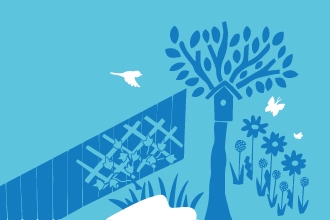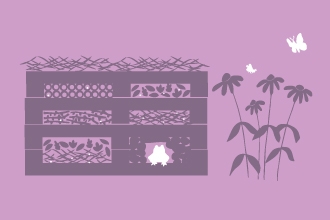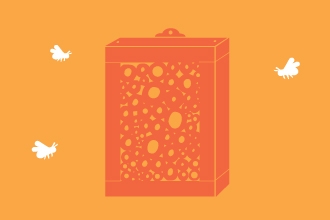Our insects are in trouble
In the UK, our insect populations have suffered drastic declines, which are set to have far-reaching consequences for both wildlife and people.
With a third of our food crops pollinated by insects, and as many as 87% of our plants pollinated by animals (and in the majority by insects) there is a lot to lose. Much of our wildlife, be it birds, bats, reptiles, amphibians, small mammals or fish, rely on insects for food. Without them, we risk the collapse of our natural world.
A report, Insect Declines and Why They Matter, published in November 2019 by an alliance of Wildlife Trusts in the south-west, brought together evidence that showed the loss of 50% or more of our insects since 1970, and the shocking reality that 41% of the Earth's remaining five million insect species are now 'threatened with extinction'.
What can be done?
While the news for insects is bleak, there remains much that can be done to bring about their recovery, but fast action is required.
Take action at home or in your community
To showcase what is needed, The Wildlife Trusts commissioned a second report published in July 2020, Reversing the Decline of Insects, which looked at case studies around the UK that are working hard to bring back insects.
To reverse the decline of insects and allow them to thrive once more, The Wildlife Trusts want to see at least 30% of land and seas properly connected, better protected and suitably managed for nature. To achieve this, it requires us all to become insect champions, taking action at home and work, in our communities and schools.
It's also essential that there is a halt to the unnecessary use of pesticides where people live, work and farm, with support for all sectors to make the transition towards becoming pesticide-free.
Other ways to help

How to start a wildlife garden from scratch
Use the blank canvas of your garden to make a home for wildlife.

How to build a bug mansion
Build your own bug mansion and attract a multitude of creepy crawlies to your garden.

How to make a bee hotel
Solitary bees are important pollinators and a gardener’s friend. Help them by building a bee hotel for your home or garden and watch…




